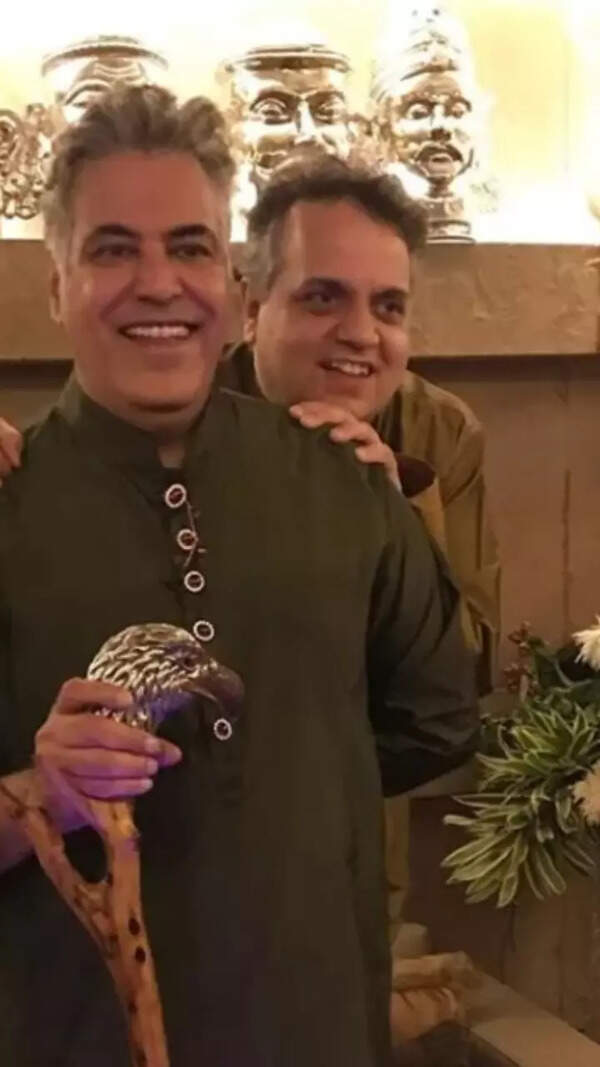Top Searches
- News
- City News
- chandigarh News
- Punjabi for legal work comes at a price
Punjabi for legal work comes at a price

Image used for representative purpose only
CHANDIGARH: The demand for implementing Punjabi for legal work in the Punjab and Haryana high court and lower courts is back, almost a decade after a similar attempt could not fructify as it required hiring of additional staff in subordinate courts, which meant more financial burden on the cash-strapped ex-chequer. On February 7, Punjab assembly speaker Kultar Singh Sandhwan organised a seminar on the promotion of Punjabi with a group of MLAs and Punjabi scholars where it was suggested that there was already a provision for implementing Punjabi in sub - ordinate courts. According to activists rooting for Punjabi, the idea is to ensure people get justice in their own language, there - by making the judicial system more “litigant friendly”.
They point out there is already a legal provision for use of Punjabi in subordinate courts. The issue is, however, not new. In 2010, after a similar demand, the registrar general of Punjab and Haryana high court had written to the Punjab government that the proposal to implement Punjabi in lower courts would need creation of 1,479 new posts, including judgement writers, stenographer and translator. The total financial implication for additional staff was estimated at Rs 24.16 crore per month. Advocate Mitter Sain Meet from Ludhiana of the ‘Punjabi Bhasha Prasar Bhaichara’ said the Punjab government had amended the Punjab Official Language Act, 1967, in May 2008 to make provision for carrying out legal work in the lower courts in the state in Punjabi.
“The correspondence went on from 2009 to 2012. But the matter didn’t move forward after the issue of hiring three employees per court came up. Nevertheless, the proposal would create more employment opportunities and the litigants would get judgments in their mother tongue,” he said. Advocate KP Singh, president of the District Bar Association, Patiala, said statements of witnesses could still be recorded in Punjabi, but these too were translated in English if the case went to the high court. “FIRs and challans are already in Punjabi. The petition and judgments in lower courts are, however, in English,” he said. Meet added if Punjabi was implemented in lower courts, when the order was pronounced in English, the translated version would also be made available.
“Another issue is that some of the laws passed in the vidhan sabha too were made in English, without the Punjabi version. The issue is pending for want of an official notification for a mandatory Punjabi version,” Meet said. Since central laws are also in English, there is a demand for revival of Punjab Language Commission (Legislative). “The task of the commission was set up in 1973 and the Centre was to bear the expenses of translating laws into Punjabi. Over time, the com - mission has become defunct. As a result, central laws are not being translated, even as some other states are doing it by outsourcing work,” said Meet.
Advocate Navin Kaushik at the Punjab and Haryana high court added for the high court, the official language could be changed to Punjabi after a go-ahead from the governor with the consent of the President. “Article 342 provides for it and four high courts have a provision for local language, apart from English. Uttar Pradesh was the first state where Hindi was allowed,” he said. For subordinate courts, Kaushik said, there is already a provision in law under a 1908 notification of the then governor of Punjab.
As per the notification, the language of the high court is English, and the language of the subordinate courts will be Punjabi in Gurmukhi script in the Punjabi region. Later, Punjab state was carved out. It is mentioned in the high court rules, he said. Old-time lawyers recall that till 15-20 years ago, legal work in subordinate courts in the state was done in Punjabi. “It is more of an issue of mindset, as some people find English more convenient. There is no issue of vocabulary and things can be conveyed in vernacular languages,” said Kaushik. There are some who feel it won’t be easy to implement legal work in Punjabi. Requesting anonymity, a lawyer practising at a district court, said it will not be easy to cite the Constitution and use legal jargon in vernacular languages.
They point out there is already a legal provision for use of Punjabi in subordinate courts. The issue is, however, not new. In 2010, after a similar demand, the registrar general of Punjab and Haryana high court had written to the Punjab government that the proposal to implement Punjabi in lower courts would need creation of 1,479 new posts, including judgement writers, stenographer and translator. The total financial implication for additional staff was estimated at Rs 24.16 crore per month. Advocate Mitter Sain Meet from Ludhiana of the ‘Punjabi Bhasha Prasar Bhaichara’ said the Punjab government had amended the Punjab Official Language Act, 1967, in May 2008 to make provision for carrying out legal work in the lower courts in the state in Punjabi.
“The correspondence went on from 2009 to 2012. But the matter didn’t move forward after the issue of hiring three employees per court came up. Nevertheless, the proposal would create more employment opportunities and the litigants would get judgments in their mother tongue,” he said. Advocate KP Singh, president of the District Bar Association, Patiala, said statements of witnesses could still be recorded in Punjabi, but these too were translated in English if the case went to the high court. “FIRs and challans are already in Punjabi. The petition and judgments in lower courts are, however, in English,” he said. Meet added if Punjabi was implemented in lower courts, when the order was pronounced in English, the translated version would also be made available.
“Another issue is that some of the laws passed in the vidhan sabha too were made in English, without the Punjabi version. The issue is pending for want of an official notification for a mandatory Punjabi version,” Meet said. Since central laws are also in English, there is a demand for revival of Punjab Language Commission (Legislative). “The task of the commission was set up in 1973 and the Centre was to bear the expenses of translating laws into Punjabi. Over time, the com - mission has become defunct. As a result, central laws are not being translated, even as some other states are doing it by outsourcing work,” said Meet.
Advocate Navin Kaushik at the Punjab and Haryana high court added for the high court, the official language could be changed to Punjabi after a go-ahead from the governor with the consent of the President. “Article 342 provides for it and four high courts have a provision for local language, apart from English. Uttar Pradesh was the first state where Hindi was allowed,” he said. For subordinate courts, Kaushik said, there is already a provision in law under a 1908 notification of the then governor of Punjab.
As per the notification, the language of the high court is English, and the language of the subordinate courts will be Punjabi in Gurmukhi script in the Punjabi region. Later, Punjab state was carved out. It is mentioned in the high court rules, he said. Old-time lawyers recall that till 15-20 years ago, legal work in subordinate courts in the state was done in Punjabi. “It is more of an issue of mindset, as some people find English more convenient. There is no issue of vocabulary and things can be conveyed in vernacular languages,” said Kaushik. There are some who feel it won’t be easy to implement legal work in Punjabi. Requesting anonymity, a lawyer practising at a district court, said it will not be easy to cite the Constitution and use legal jargon in vernacular languages.

About the Author
Vibhor MohanVibhor Mohan is Special Correspondent with The Times of India’s Punjab Bureau at Chandigarh. He holds post-graduate degrees in Mass Communication and English and has nearly 15 years of experience, having covered important stations in Punjab. He covers news concerning Punjab politics, NRI affairs and the power sector, besides specializing in writing on architecture, especially on the works of Le Corbusier, the man who gave India its first designed city – Chandigarh.
Start a Conversation
FOLLOW US ON SOCIAL MEDIA
FacebookTwitterInstagramKOO APPYOUTUBE









